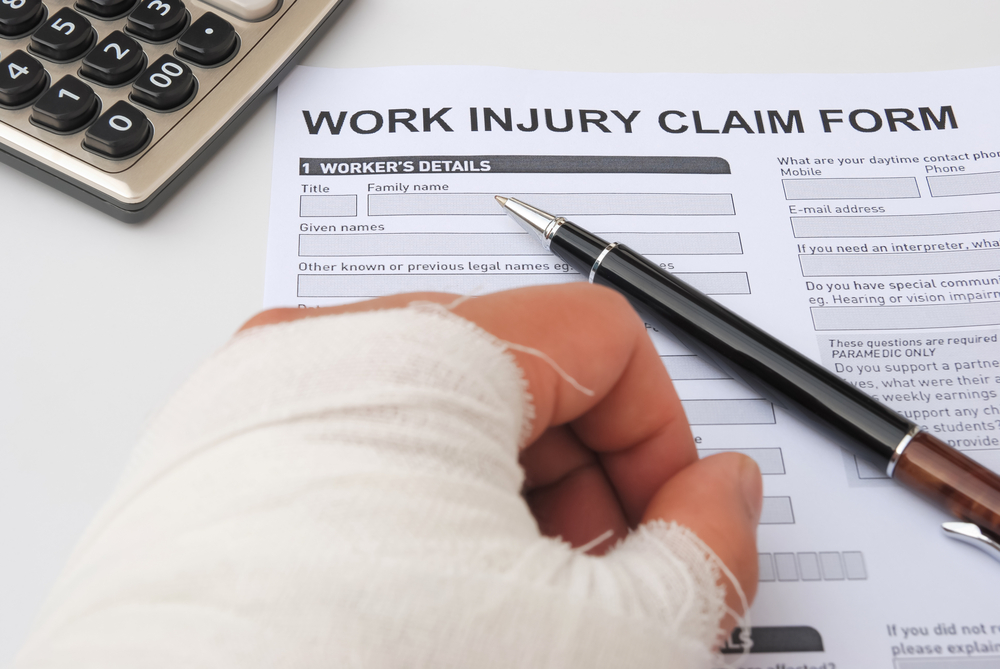Steve Sabra, of Sabra and Aspden Law Offices in Fall River, spoke on Law Talk about a pregnancy bias claim against UPS that has reached the U.S. Supreme Court. It’s essentially about discrimination against someone who is pregnant. The basics are that this woman was pregnant and UPS told her they wouldn’t give her a temporary assignment against lifting heavy packages, so she sued on the grounds that she should’ve been allowed changes in her duties.
UPS makes modifications in other circumstances but not for a woman who is pregnant. For example, they would provide temporary light duty work for an employee who either had an on the job injury, was deemed disabled under federal law, or lost their federal driver’s certification from an accident or a DUI case. Her argument is if you’re providing temporary light duty work for those groups of employees then they’re discriminating against her as a pregnant woman by not allowing a change in duty.
According to her, they basically said to her that she should go home and come back when she’s no longer pregnant. UPS claims that they didn’t intentionally discriminate against her and they didn’t do anything wrong.

6 Facts Most People Do Not Know About Workers’ Compensation
Workers’ compensation is a form of insurance providing wage replacement that gives medical benefits to employees injured while performing regular tasks on their job. This is in exchange for the relinquishment of an employee’s right to sue his or her employer for tort of negligence. Workers’ compensation avoids what is known as, “the compensation bargain,” which is a tradeoff off of assured limited coverage and lack of recourse.
Workers’ compensation plans vary among jurisdictions. Some jurisdictions have provisions made for weekly payments in place of wages, functioning as a form of disability insurance. Workers can also be reimbursed for medical expenses, functioning as a form of health insurance. Another plan could be that jurisdictions have benefits payable to the people dependent upon a worker who was killed while working on the job, functioning as a form of life insurance.
However, pain and suffering and punitive damages for employer negligence are not typically available through workers’ compensation plans. Generally, negligence itself is not an issue in the case.
If you live in the Fall River area and have workers’ compensation, there may be some benefits to your workers’ compensation that you are unaware of. Here are a few things most people do not know:
You can receive benefits even if you were responsible. Most people assume that if they are at fault they cannot benefit from workers’ compensation. However, that is not true. Even if your personal injuries are your own fault, workers’ compensation is a no-fault insurance. Therefore, regardless of fault, you are encouraged to seek the health benefits that are provided to you.
Also, if you are at fault for a co-worker’s injuries, you cannot be sued under workers’ compensation because you were doing your job.
You cannot sue your employer. If your injuries are another employee’s fault, you cannot sue them if they were working on the job. Therefore, you cannot receive compensation for your pain and suffering through workers’ compensation.
You can, however, sue if someone who is not a co-worker under workers’ compensation injured you on the job. For instance, if you broke your leg on site due to the negligence of someone who does not work there, you can press charges against that individual.
You can sue if a work injury was due to faulty equipment. You cannot sue a fellow employee under workers’ compensation; however, you may be able to sue if your injuries were due to a defective product or piece of equipment you had to use in order to do your job. Also, if you were injured on the job by someone who is not employed by your employer under workers’ compensation, then you may receive compensation for pain and suffering.
Whether or not you can choose your physician depends on your own workers’ compensation. You may want to use your own personal physician after being injured, but before seeing them, understand that workers’ compensation varies on whether it is covered under a particular physician or if you get to use your own doctor. If you see your own doctor over the one given to you, it may not be covered under your workers’ compensation. Ask your workers’ compensation attorney for more information on this specifically regarding your own case.
You can receive benefits from other occupational injuries. If there was no specific incident, but rather a long-term exposure during your job, you can also receive benefits. An example of this would be if you were exposed to chemicals or any other substance that has resulted in any sort of ailment to you over the years.
Some chemicals or substances this could apply to would be: fire, flammable gases, poisonous gases, high pressure gases and liquids, hot gases and liquids, oxygen-free spaces and gases, toxic materials, electricity, powerful machinery, radiation, explosives, heat, or working on, near, or under weak or heavy structures or water.
Most commonly, occupational injuries (or long-term injuries) cause damage to the head, spine, skeleton, skin, eyes, lungs, and hands.
If an accident on the job resulted in permanent disability, you may be eligible for Social Security benefits. If you were the victim of an on the job catastrophic accident, you may be eligible to receive disability benefits through Social Security. Social Security is a government system which provides money in assisting people with inadequate or no income either due to retirement, disability, or unemployment. In order to prove your disability was caused on the job, you need to provide medical documents and expert testimony from your medical professional.
For more than 35 years, Sabra and Aspden have been Southern New England’s best workers’ compensation and personal injury attorneys. Sabra and Aspden handle cases in the Somerset, New Bedford, Swansea, Fall River, and Assonet areas.


